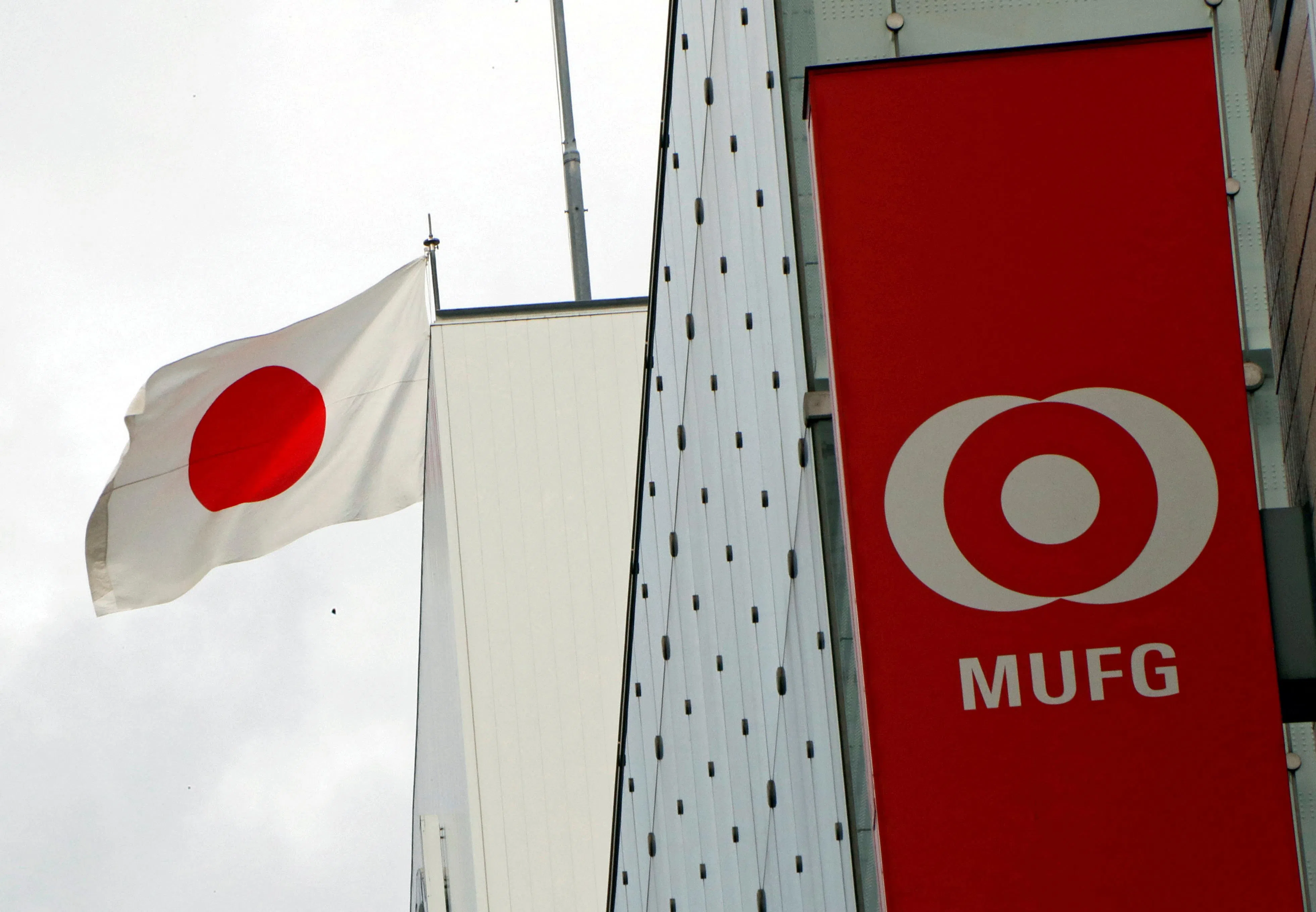AS JAPAN’S biggest bank heads for record profit that surpasses even its own projections, one thing is on the mind of its chief financial officer: what to do with all those extra earnings and how to make the good times last.
Mitsubishi UFJ Financial Group (MUFG) is set to report fiscal third-quarter results on Tuesday (Feb 4) that will propel the lender closer to its goal of an unprecedented 1.75 trillion yen (S$15.3 billion) in annual net income. Rising interest rates at home, a buoyant stock market and a weak yen are fuelling profits, propelling MUFG’s share price to levels unseen since its 2001 listing.
Yet CFO Jun Togawa recognises that more needs to be done to sustain profit growth and catch up with global rivals to attract investors.
“We need to make growth investment constantly,” Togawa, 57, said. “We will do that considering the balance with shareholder returns.”
The Tokyo-based bank has more room to invest in the business, given that profits and return on equity (ROE) are set to exceed goals envisioned in its medium-term business plan ending March 2027, he said.
The Bank of Japan’s (BOJ) rate hikes are spurring lending income that was squeezed by rock-bottom borrowing costs for more than a decade. Japanese banks have also been booking gains from sales of stakes in client companies as part of a campaign to cut cross-shareholdings. And the yen’s 26 per cent decline versus the US dollar in the past three years has boosted the value of earnings abroad, where MUFG has been expanding.
BT in your inbox
Start and end each day with the latest news stories and analyses delivered straight to your inbox.
But Togawa said the bank is working to build up profit drivers that put it on a sustainable growth footing even without the help of these tailwinds.
“One of the keys to enhancing ROE is how much we can expand fee revenue, which doesn’t use our balance sheet,” he said. The bank’s investment in Asia’s financial technology startups is also expected to boost its future profits, he added.
Investors have been snapping up Japanese bank stocks. MUFG’s shares have climbed 38 per cent in the past 12 months, taking its market capitalisation to about US$150 billion, trailing only Toyota Motor as the country’s most valuable company.
Togawa said overseas investors are returning to the bank after dumping its shares when the BOJ introduced its negative-rate policy in 2016. In a sign that shareholders’ expectations are rising, he said growth investors – those who anticipate higher potential earnings – are increasing, while investors who make bets based on a low valuation are falling.
Togawa, who visited about 30 institutional investors in the US and Europe in early January, said the bank is becoming more conscious of global peers. It needs to catch up with overseas rivals on key metrics such as ROE and price-to-book ratio to attract funds that invest in the top companies worldwide, he said.
MUFG is ahead of some competitors on these measures, but there is still a big distance from the top banks. JPMorgan Chase has a price-to-book ratio of 2.3 and ROE of 18.2 per cent, while the numbers for MUFG are 1.1 and 9.3 per cent, according to data compiled by Bloomberg.
Togawa said the bank wants to raise its price-to-book ratio – a reflection of the market value relative to the book value of its assets – to 1.2, a level unseen since 2009. “To be invested by global funds, we have to be at least at the same level as European banks, given the similar interest-rate environments,” he said.
MUFG has been fielding questions from overseas investors on its plans for further share buybacks, Togawa said. The bank announced an additional share repurchase programme worth 300 billion yen in November, bringing the annual total to 400 billion yen, the same amount as the previous fiscal year.
“Our shares are undervalued. That’s one reason why we keep doing buybacks,” he said.
Cost control is another critical part of boosting profitability, Togawa said. While higher revenue has curbed the bank’s expense ratio, the absolute volume of costs is set to grow at a time when inflation is returning to Japan, he said.
“There are inflationary pressures, wage and IT spending and compliance costs,” he said. “We also need to make defensive investments, such as cyber security. Cost control is a challenge.” BLOOMBERG




